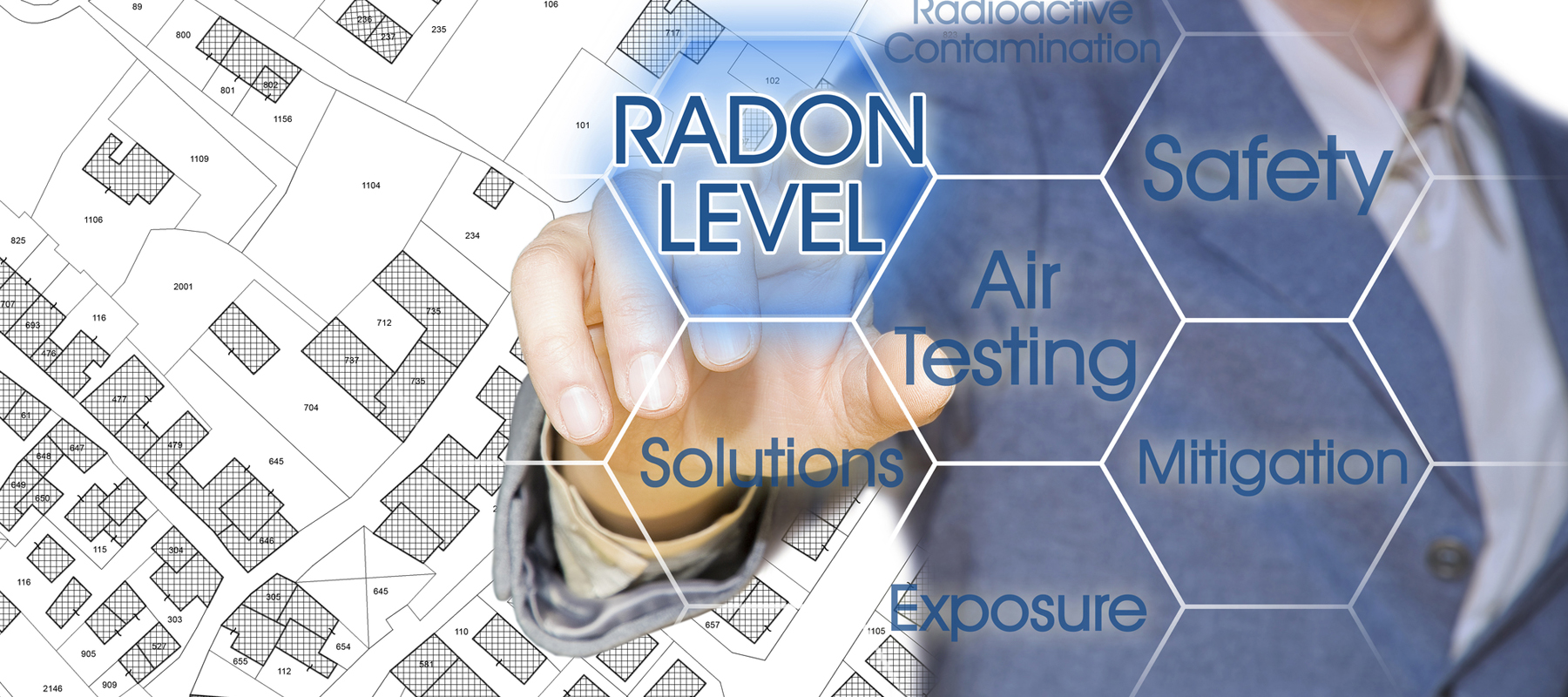Radon Testing Costs, Process and Mitigation Prices Explained
Last Updated: October 03, 2023

Fact Checked By: Ryan Maguire
On This Page
What is Radon Gas and Do I Need a Radon Gas Test? #
Radon is an invisible, radioactive gas that is formed naturally from the decay of uranium in soil, rock, and water. It enters homes through cracks and openings in foundations. All homes have some level of radon, but elevated levels can pose a health risk.
Testing your home for radon is recommended because:
- Radon is the leading cause of lung cancer among non-smokers. Radon exposure is responsible for over 20,000 lung cancer deaths per year according to EPA estimates.
- Radon levels can vary greatly from home to home, even on the same street. The only way to know if radon is at dangerous levels is to test.
- Radon testing is easy and inexpensive. Short-term test kits cost $15-$50 and long-term tests are $30-$150.
- If high radon levels are detected, it can be mitigated by installing a radon reduction system. This can lower home radon levels by up to 99%.
- Radon testing is recommended by the EPA, Surgeon General, and major health organizations. Many state health codes also require radon testing during real estate transactions.
- The EPA and WHO recommend radon levels below 4 pCi/L. Testing is the only way to find out if remediation is needed to bring your home's radon down to safe levels and protect your family's health. Most experts recommend testing every 5-10 years.
Radon Testing Costs #
Having your home tested for radon is important to detect any unsafe levels and take mitigation action if needed. Here are typical professional radon testing costs:
Short Term Testing
- Passive 2-7 day test - $15 to $30
- Active pump 2-7 day test - $30 to $50
Long Term Testing
- 3-6 month passive test - $30 to $50
- 3-12 month active test - $60 to $150
Added Costs
- Multiple test locations - $15 to $30 per room
- Rush testing fees - $25 to $75
- Post-mitigation confirmation testing - $75 to $200
Factors Affecting Cost
- Type and duration of test
- Size of home and number of floors/rooms
- Local rates and company pricing
New Construction Testing
- Pre-construction soil gas testing - $150 to $400
- Post-construction radon testing - $250 to $500
Average Range
- Small home short-term test - $125 to $250
- Large home long-term test - $250 to $500
Get quotes from certified radon inspection companies to find the best rates.
Radon Testing Cost Examples #
A homeowner in Kansas paid $165 for a professional to conduct short-term radon tests in their small single-story home. Two test kits were used - one in the basement and one on the ground floor.
A buyer in Illinois was charged $275 for radon inspection during their home purchase process. This included short and long-term radon tests placed around the home's foundation.
A family in Maine paid $410 to test their large two-story, 2500 sq ft house for radon gas. Four long-term radon test kits were strategically placed in different areas in the home.
An owner of a commercial office building in Utah hired a certified inspector to test ten separate office spaces. They were charged $750 for multi-zone short and long-term radon gas testing.
A new home builder in Texas offers a radon test package for $375 which includes pre-construction soil gas testing, post-construction tests, and a radon vent rough-in.
A school district in New Mexico tested 20 classrooms across 3 school buildings and paid $1200 for professional radon inspection and analysis of the results.
These examples illustrate radon testing costs ranging from $165 for a basic single home test, up to over $1000 for larger commercial spaces or new constructions requiring extensive multi-point inspections and thorough analysis. Costs vary based on testing needed.
Radon Gas Mitigation System Costs #
Installing a radon mitigation system is recommended if radon levels above 4 pCi/L are detected in your home. Here are typical radon mitigation system costs:
Radon Mitigation System
- Active soil depressurization system - $800 to $2,500
- Sub-slab suction system - $1,500 to $3,500
- Drain tile suction system - $2,000 to $4,000
- Block wall suction system - $2,500 to $5,000
- Sub-membrane suction system - $4,000 to $6,000
Added Costs
- Permanent radon detector/monitor - $200 to $500 installed
- Aesthetic piping concealment - $500 to $2,000
- Electrical upgrades - $500 to $2,000 if needed
- Specialty ventilation equipment - $1,000 to $3,000
Mitigation System Total Cost
- Small home (under 2,000 sq ft) - $2,500 to $5,000
- Large home (over 2,500 sq ft) - $5,000 to $12,000
- High radon levels or complex install - $10,000+
Professional installation is highly recommended over DIY due to technical expertise needed. Get quotes from certified radon mitigation contractors.
What to Know About Radon Testing #
Radon is measured in picocuries per liter (pCi/L) which indicates radioactivity level.
Short-term radon tests remain in your home for 2 to 90 days, while long-term tests are left for more than 90 days to give a better annual average.
Test kits contain a small filter that detects and measures radon gas levels. Used kits are sealed and returned to a lab for analysis.
Tests should be placed in the lowest livable level of the home where radon levels are highest. Ideal spots are near foundation walls or above sump pits.
All exterior doors and windows should be closed 12 hours before and during the test for accurate results.
Testing when major weather or pressure changes occur can affect results, so ideal testing conditions are needed.
Take multiple tests in different areas/floors of the home for thorough results.
Proper procedures must be carefully followed when placing, monitoring, and returning test kits to ensure precision.
Test kits should be analyzed by a certified radon measurement laboratory for accurate results.
Mitigation is recommended if radon levels are found to be at or above the EPA action level of 4 pCi/L.
Following proper radon testing protocols ensures you get precise results on home radon levels to make informed decisions on mitigation needs.
